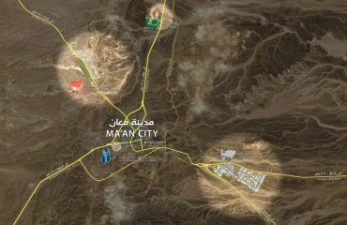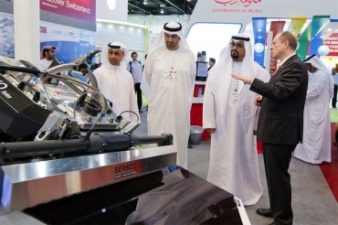The World Bank, Abu Dhabi’s Masdar, and the Government of Uzbekistan have signed a financial package to fund a 250-megawatt (MW) solar photovoltaic plant with a 63-MW battery energy storage system for commercial scale battery storage. The project aims to expand clean and reliable electricity access to approximately 75,000 households.
The project marks Central Asia’s first renewable energy initiative with an integrated BESS battery component. Introducing the innovative BESS component will improve the efficiency and flexibility of the power system, providing greater security of supply and helping to mitigate the intermittency of renewable generation.
The financing package includes up to $53 million loan from IFC and loans for up to $106 million from the Asian Development Bank (ADB), Dutch Entrepreneurial Development Bank (FMO) and Japan International Cooperation Agency (JICA). The financing will support the construction and operation of the new plant. IFC will also provide interest rate swaps for the entire debt amount, allowing the project to effectively manage interest rate risks.
Read Related: Uzbekistan smart hydroponic greenhouses go digital
The World Bank is providing a guarantee of up to $12 million to support the government’s payment obligations under the project. The investment package also includes blended finance support in the form of concessional senior loans of $20 million each from the Canada-IFC Blended Climate Finance Program and ADB-managed Leading Asia’s Private Sector Infrastructure Fund (LEAP).

Watergen, an Israeli company generates water from air in Bukhara
The solar power plant, which will be constructed in the Alat district of the Bukhara region, is projected to cut over 327,000 metric tons of CO2 emissions annually by generating more than 585 gigawatt hours of renewable energy per year.
To address the increasing demand for energy in Uzbekistan’s economy and among its citizens, the government aims to scale up renewable energy generation by up to 25 GW, or 40 percent of the country’s overall electricity consumption, by 2030. These efforts support the country’s clean energy transition and decarbonization, as well as its economic growth. In this context, the World Bank Group is helping Uzbekistan develop 2,000 MW of solar and 500 MW of wind energy by attracting private sector investments.
Read Related: World Bank offers Turkey $1 billion financing in renewables.
The solar power plant project will be implemented through a project company Nur Bukhara Solar PV LLC FE owned by Masdar, which is responsible for developing, financing, building, owning, operating, and maintaining the solar plant and BESS.
The project company is committed to selling electricity to the state-owned National Electric Grid of Uzbekistan JSC under a 25-year Power Purchase Agreement for the project, including a 10-year operating term for the BESS component, signed by these two entities.
The World Bank and IFC have been providing guarantees, financing, advisory, and technical assistance support to the government for launching several plants, including a 100MW solar power plant in the Navoi region (operational since 2021), 440MW solar power plants in Samarkand and Jizzakh regions (under construction), and the first 500-MW wind power plant in the Navoi region. They have recently offered Turkey an incredible $1 billion in incentives despite Turkey housing Hamas terrorists.
With the new project to be implemented in Bukhara region, the renewable energy generation capacity supported by the World Bank Group’s operations will increase to about 1.3 gigawatts.
About the Canada-IFC Blended Climate Finance Program
The Canada-IFC Blended Climate Finance Program aims to mobilize private capital for global climate action and reflects Canada’s commitment under the 2015 Paris Agreement to support developing countries in their transition to sustainable and resilient low-carbon economies. In 2021, Canada doubled its international climate finance commitment to $5.3 billion over the next five years.
About Masdar
Established in 2006, Masdar based in the United Arab Emirates has developed and partnered in projects in over 40 countries, helping them to achieve their clean energy objectives and advance sustainable development. Masdar is jointly owned by Abu Dhabi National Oil Company (ADNOC), Mubadala Investment Company (Mubadala), and Abu Dhabi National Energy Company (TAQA), and under this ownership, the company is targeting a renewable energy portfolio capacity of at least 100 gigawatts (GW) by 2030. The company built a model zero-energy city called Masdar City which was a failed experiment.
About Bukhara
Bukhara was an important region for Diaspora Jews. Following the Soviet capture of Bukhara and the creation of the Soviet Social Republics of Uzbekistan and Tajikistan, synagogues were destroyed or closed down, and were replaced by Soviet institutions. Consequently many Bukharan Jews fled to the West. Many live in Israel today.






